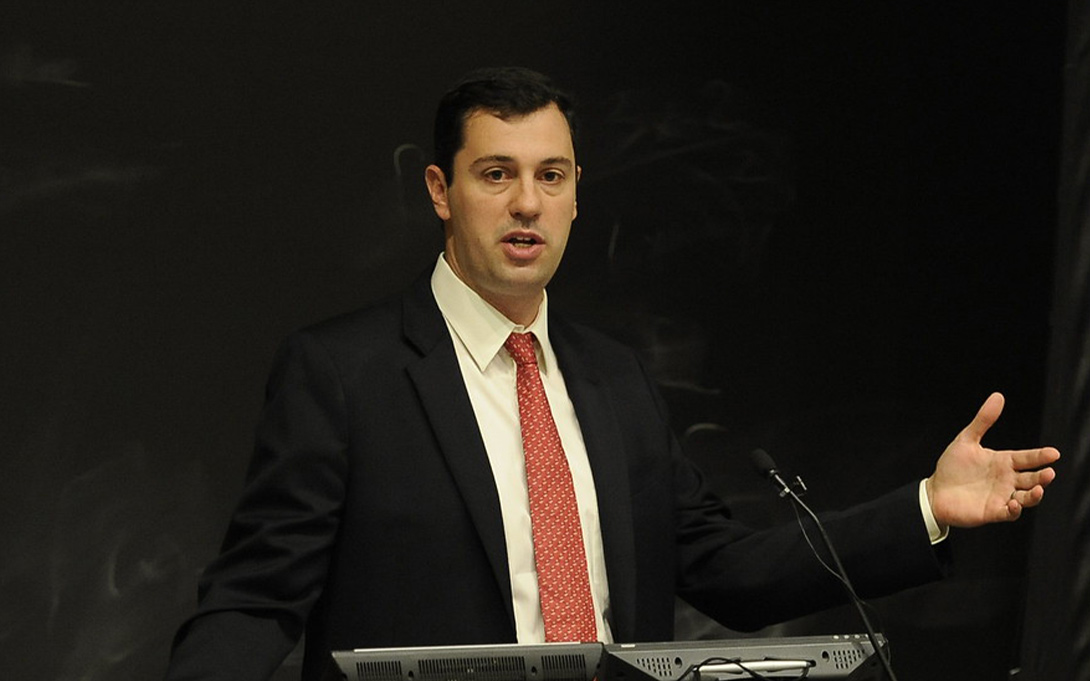
As the Biden administration embarks on its first hundred days, experts from the Gerald R. Ford School of Public Policy have produced a series of policy briefs on key issues. Download the PDF of this brief or read the web-formatted version below.
By John Ciorciari
Associate professor of public policy; Director, Weiser Diplomacy Center and International Policy Center
Overview
U.S. credibility in Southeast Asia has suffered during the Trump administration at a time when China’s influence is rising rapidly. Erratic U.S. postures toward allies and adversaries have cast doubt on the reliability of the American security commitment to the region. Withdrawal from the Trans-Pacific Partnership and a slow ramp-up of development financing have weakened the economic pillar of U.S. engagement in the region. Trump’s absence from three consecutive Asian summits and downgrading of multilateral diplomacy have undermined America’s appeal as a diplomatic partner to the Association of Southeast Asian Nations (ASEAN). Weak and inconsistent U.S. responses to democratic backsliding and human rights abuses in the region also have undercut U.S. credibility as a defender of liberal values. The Biden administration will need to articulate and implement a Southeast Asia strategy that reclaims influence in each of these areas.
Why the issue is important
Although Southeast Asia is seldom a front burner issue in U.S. foreign policy, it is an area of vital interest to the United States. ASEAN members collectively account for more U.S. trade than all but three countries—China, Canada, and Mexico—and together will soon surpass the world’s fourth largest economy in size. Southeast Asia is also strategically critical, sitting astride the world’s busiest commercial sea lanes where the interests of several major powers intersect. It is the hub of the network of regional institutions defining the Indo-Pacific regional order, and it is a key battleground in the global struggle between democracy and authoritarianism.
There is ample opportunity to regain influence. Although Southeast Asian elites have serious concerns about U.S strategic inconsistency, economic protectionism, and unilateralism, they also worry about China’s surging clout and the economic effects of COVID-19. In general, Southeast Asians will welcome the United States back.
Policy solutions
Soon after the Biden administration takes office, it should take steps promptly to begin restoring U.S. credibility in four key domains.
- Reinforce alliance commitments. The new U.S. Secretary of Defense should travel early in his or her tenure to Asia, making stops that communicate Southeast Asia’s centrality to the Indo-Pacific region. Visits to Tokyo, Manila, Bangkok and/or Singapore, and New Delhi could coincide with joint maritime exercises to communicate stability and resolve in the U.S. security presence in the region. Continued Freedom of Navigation Operations in the South China Sea will also be a welcome sign of a continued American defense commitment.
- Restart talks on trade. President-elect Biden has not expressed support for joining the refashioned Comprehensive and Progressive Agreement for Trans-Pacific Partnership (CPTPP). Forging a new Pacific trade deal will be very difficult domestically, especially given the economic challenges arising from the pandemic. Nevertheless, the Biden administration should initiate talks on possible CPTPP participation, particularly in light of the recent completion of the Chinese-led Regional Comprehensive Economic Partnership. Japan will be a ready and able partner in facilitating renewed talks, as will key Southeast Asian participants such as Singapore and Vietnam. Southeast Asian observers regard U.S. economic investment in Southeast Asia as the best indicator of the likelihood of an extended American political and security commitment to the region.
- Re-elevate ASEAN. U.S. officials often find ASEAN-centered diplomacy frustrating, as its consensus-based approach impedes collective action on challenges like the Rohingya crisis and the South China Sea. However, the same processes constrain China and other regional actors as well, reducing the need for more costly and dangerous forms of great-power competition. President-elect Biden should invite all ten ASEAN heads of state to a summit akin to the one President Obama hosted in 2016. Doing so would indicate a priority both on the region and on the Association, which despite its limitations will be central to upholding a rules-based regional order.
- Engage resolutely. U.S. credibility in Southeast Asia has long suffered from perceptions that the United States advances its democratic values selectively and inconsistently. Going forward, concerns about Chinese influence may induce caution in U.S. values diplomacy in the region. However, the United States will not prevail in a race to the bottom in governance standards in Southeast Asia. Ostracizing illiberal Southeast Asian regimes is also not a viable option, as that would surely propel them toward Beijing. The Biden administration should steer a middle path. It should engage robustly with governments in Cambodia, Myanmar and elsewhere, pressing them to address rights violations and laying out clear, realistic demands they can satisfy to forestall or relieve targeted sanctions.
More information
- Michael J. Green and Gregory B. Poling, “Biden Can Engage Southeast Asia and Still Promote Good Governance,” Center for Strategic and International Studies, November 13, 2020.
- Richard Maude, “The United States and Southeast Asia: A New Start,” Asia Society, November 17, 2020.
